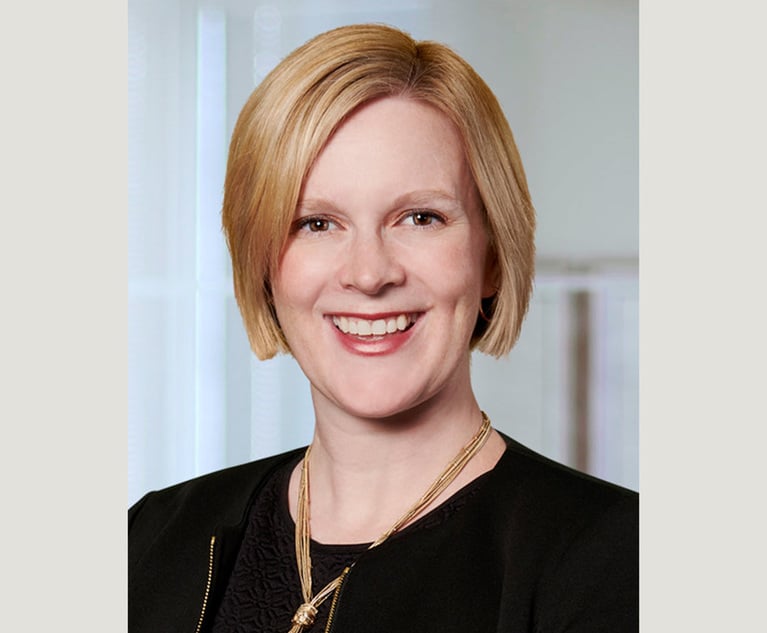Big Law Has Trust Issues | The Cost of Entering (or Sitting Out) the Associate Salary Wars | Paul Weiss Advises Shutterfly in Acquisition: The Morning Minute
The news and analysis you need to start your day.
June 15, 2021 at 06:00 AM
4 minute read

Want to get this daily news briefing by email? Here's the sign-up.
|
WHAT WE'RE WATCHING
POLICY OF TRUTH - After decades of demonstrating that the best way to get ahead in Big Law is to put work above all else, large law firms' recent attempts to promote things like mental health and wellness and remote work flexibility are (often rightfully so) being viewed with suspicion. There's a sense that every policy purportedly geared toward improving work-life balance is really just a loyalty test in disguise. Complicating matters further is the fact that not every effort to address burnout actually is being made in good faith. As the old saying goes: just because you're paranoid, doesn't mean they aren't after you. And, as we explore in this week's Law.com Trendspotter column, even well-intentioned law firm leaders face challenges in convincing their people that it's OK to decelerate once in awhile—and that's a major hindrance to addressing the very real mental health problem affecting the industry.
EVERYTHING HAS A PRICE - It's tempting to roll your eyes at the ever-escalating associate salary wars, which this year surpassed $200,000 for first-year associates. Each year, like clockwork, a handful of firms set the initial bar and then a competitor vaults over it, leading the rest of the market to trip over itself trying to catch up. What's the point of this madness? Well, for one thing, signaling that your firm is staying competitive for top young talent also sends the message that you're competitive for more senior talent. "I have seen an increase in partner candidates seeking to leave their firms because the firm is not retaining/attracting the best associates due to the salary wars," San Francisco-based legal recruiter Avis Caravello told Law.com's Dylan Jackson, Lizzy McLellan and Christine Simmons. "Moreover, a lateral partner or group acquisition can be jeopardized if the acquiring firm is not competitive in the associate market." On the other hand, keeping up with the Davis Polks of the world comes with its own (quite literal) costs in the form of partner profits. "This should be a wake-up call to partners everywhere: the cost of not enhancing the value proposition for associates can now be quantified as the multiyear decline in PPP resulting from this latest transfer of monies from partner profits to fixed associate comp," law firm strategist Hugh Simons said.
FLASH SALE - Shutterfly, the online retailer specializing in personalized photo products, has agreed to purchase Spoonflower, a market platform for custom fabric, wallpaper and home decor, for $225 million. The transaction, announced June 14, is expected to close by the third quarter of 2021. Shutterfly, which is based in Redwood City, California, is advised by a Paul, Weiss, Rifkind, Wharton & Garrison team led by Justin Rosenberg and Taurie M. Zeitzer. Counsel information for Durham, North Carolina-based Spoonflower was not immediately available. Stay up on the latest deals and litigation with the new Law.com Radar.
|
EDITOR'S PICKS
| | |- General Counsel 'Floored' After His Job Is 'Eliminated' By Phillip Bantz
- SCOTUS Sends LinkedIn Scraping Skirmish Against Data Miner Back to 9th Circuit By Alaina Lancaster
- 'No Amount of Apologizing': Judge Scolds DOJ, but Pauses Release of Trump Prosecution Memo By Jacqueline Thomsen
|
WHILE YOU WERE SLEEPING
COST OF DOING BUSINESS - Mid-tier U.K. law firms increased their average lawyer salaries faster than their larger rivals in the 2019-20 financial year, Law.com International's Meganne Tillay reports. While Linklaters, Freshfields Bruckhaus Deringer, Clifford Chance, Allen & Overy and Hogan Lovells continue to have the highest staff cost per fee-earner, most of the top five firms did not increase their spend in the 12 months to April 2020, according to a study by professional services firm Smith & Williamson. In contrast, mid-tier law firms such as Travers Smith, Bryan Cave Leighton Paisner, Stephenson Harwood and Addleshaw Goddard all increased their spend by 7% or more.
|
WHAT YOU SAID
"Employment lawyers around the country would recommend that it's safe for an employer to mandate a vaccine, and not worry about legal repercussions."
This content has been archived. It is available through our partners, LexisNexis® and Bloomberg Law.
To view this content, please continue to their sites.
Not a Lexis Subscriber?
Subscribe Now
Not a Bloomberg Law Subscriber?
Subscribe Now
NOT FOR REPRINT
© 2024 ALM Global, LLC, All Rights Reserved. Request academic re-use from www.copyright.com. All other uses, submit a request to [email protected]. For more information visit Asset & Logo Licensing.
You Might Like
View All
How My Postpartum Depression Led to Launching My Firm’s Parental Leave Coaching Program
9 minute read
Many Lawyers Are Reeling From Election Results, but Leaders Are Staying Mum
6 minute read
Judge: Schools Can Sue Social Media for Expenses Related to Addicted Students
5 minute readLaw Firms Mentioned
Trending Stories
- 1Recent Decisions Regarding the Telephone Consumer Protection Act
- 2The Tech Built by Law Firms in 2024
- 3Distressed M&A: Mass Torts, Bankruptcy and Furthering the Search for Consensus: Another Purdue Decision
- 4For Safer Traffic Stops, Replace Paper Documents With ‘Contactless’ Tech
- 5As Second Trump Administration Approaches, Businesses Brace for Sweeping Changes to Immigration Policy
Who Got The Work
Michael G. Bongiorno, Andrew Scott Dulberg and Elizabeth E. Driscoll from Wilmer Cutler Pickering Hale and Dorr have stepped in to represent Symbotic Inc., an A.I.-enabled technology platform that focuses on increasing supply chain efficiency, and other defendants in a pending shareholder derivative lawsuit. The case, filed Oct. 2 in Massachusetts District Court by the Brown Law Firm on behalf of Stephen Austen, accuses certain officers and directors of misleading investors in regard to Symbotic's potential for margin growth by failing to disclose that the company was not equipped to timely deploy its systems or manage expenses through project delays. The case, assigned to U.S. District Judge Nathaniel M. Gorton, is 1:24-cv-12522, Austen v. Cohen et al.
Who Got The Work
Edmund Polubinski and Marie Killmond of Davis Polk & Wardwell have entered appearances for data platform software development company MongoDB and other defendants in a pending shareholder derivative lawsuit. The action, filed Oct. 7 in New York Southern District Court by the Brown Law Firm, accuses the company's directors and/or officers of falsely expressing confidence in the company’s restructuring of its sales incentive plan and downplaying the severity of decreases in its upfront commitments. The case is 1:24-cv-07594, Roy v. Ittycheria et al.
Who Got The Work
Amy O. Bruchs and Kurt F. Ellison of Michael Best & Friedrich have entered appearances for Epic Systems Corp. in a pending employment discrimination lawsuit. The suit was filed Sept. 7 in Wisconsin Western District Court by Levine Eisberner LLC and Siri & Glimstad on behalf of a project manager who claims that he was wrongfully terminated after applying for a religious exemption to the defendant's COVID-19 vaccine mandate. The case, assigned to U.S. Magistrate Judge Anita Marie Boor, is 3:24-cv-00630, Secker, Nathan v. Epic Systems Corporation.
Who Got The Work
David X. Sullivan, Thomas J. Finn and Gregory A. Hall from McCarter & English have entered appearances for Sunrun Installation Services in a pending civil rights lawsuit. The complaint was filed Sept. 4 in Connecticut District Court by attorney Robert M. Berke on behalf of former employee George Edward Steins, who was arrested and charged with employing an unregistered home improvement salesperson. The complaint alleges that had Sunrun informed the Connecticut Department of Consumer Protection that the plaintiff's employment had ended in 2017 and that he no longer held Sunrun's home improvement contractor license, he would not have been hit with charges, which were dismissed in May 2024. The case, assigned to U.S. District Judge Jeffrey A. Meyer, is 3:24-cv-01423, Steins v. Sunrun, Inc. et al.
Who Got The Work
Greenberg Traurig shareholder Joshua L. Raskin has entered an appearance for boohoo.com UK Ltd. in a pending patent infringement lawsuit. The suit, filed Sept. 3 in Texas Eastern District Court by Rozier Hardt McDonough on behalf of Alto Dynamics, asserts five patents related to an online shopping platform. The case, assigned to U.S. District Judge Rodney Gilstrap, is 2:24-cv-00719, Alto Dynamics, LLC v. boohoo.com UK Limited.
Featured Firms
Law Offices of Gary Martin Hays & Associates, P.C.
(470) 294-1674
Law Offices of Mark E. Salomone
(857) 444-6468
Smith & Hassler
(713) 739-1250









